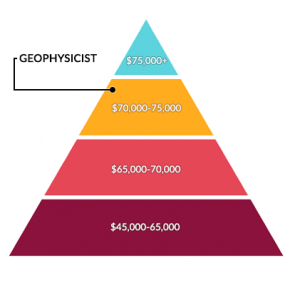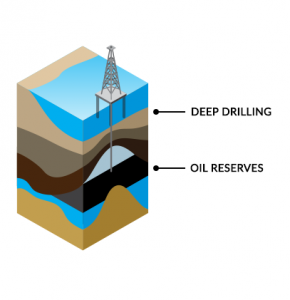All Categories
Featured
Table of Contents
Geophysicist Bob Embley: Ocean Exploration Careers in Stirling WA 2020
This work is progressively contracted out, so consultancies provide another source of employment. Consultancy companies vary in size, from very little companies to large multinationals. Some consultancies are rather specialised in utilizing particular geophysical methods or operating in specific areas, while others use a more diverse variety of services to their clients.
The extraction of gas from landfill sites is another area of work and this may grow in the future. Expedition companies may undertake work for building and construction companies, public utility, mining business and ecological agencies, so geophysicists might be used in any of these settings. Other companies consist of: geological surveysgovernment bodies and agenciesuniversities and research institutes.


Vacancies might be noted in the oil and gas sector press. Recruitment is affected by oil price changes and the level of competition for positions differs depending upon this. Careers Days, which cover the full variety of geoscience professions and are normally participated in by a number of crucial industry companies, are run by The Geological Society.
Geophysical Survey Services in Wandi Australia 2023
Some of the big oil and gas business provide a complete two-year structured training programme across the breadth of geophysics, including the opportunity to experience operate in numerous teams before specialising in one location. Your training might consist of work on: existing wellsmagnetic and gravitational potential field information analysisresearchrock analysis. However, it's more typical for your preliminary training to be offered on the job.

There may be a probationary duration during which you work together with an experienced associate. Competency-based appraisals take place frequently in the majority of firms. In smaller companies, and for academic posts, there is not likely to be any formal training - you'll be expected to start work straightaway and get abilities as you go along.
If you work for a smaller sized business, you may find that you need to take duty for arranging and funding your own advancement and training. If you have a geology degree, subscription of The Geological Society can be useful for networking and for keeping up to date with the industry.
What Is A Seismic Survey? in Tapping Aus 2022
You might likewise find it beneficial to join the PESGB (The Petroleum Exploration Society of Great Britain, which has a geophysics special interest group. After a probationary duration, and once you have actually gotten some experience, you might advance to senior geophysicist, then group leader and after that into a senior role in management.
The ease of motion between functions depends on the company structure. Study at Masters or Ph, D level in a subject associated to geophysics or geosciences may assist with your career advancement and progression. The work market within the oil and gas industry is really based on rate and this might impact your opportunities for profession development.
For experienced geophysicists, freelance consultancy offers an excellent route for profession development. As a geophysicist, you're likely to have numerous jobs throughout your working life.
Careers In Geology And Geophysics in Marmion Australia 2023
From geophysics, it's possible to focus on seismology (completing additional training to end up being a seismic interpreter) or to move into related areas such as engineering geology or risk forecast.
Choosing what to study in college is a tough option. Even if you understand that your field of interest depends on science, what program of research study is right for you? If you make the choice to significant in physical and biological sciences and pursue a career as a geophysicist, you're preparing for an exciting and lucrative occupation.
However the initial step to accomplishing your objective of ending up being a geophysicist is making a degree. Even for entry-level positions in the field of geoscience, you'll need a bachelor's degree (a geophysicist college degree) from a certified college or university. Some research positions need candidates to hold master's degrees or perhaps Ph.
Geophysical Methods in Hillman Australia 2020
Doctoral degrees are especially essential if you prepare to teach at a four-year institution. Geophysicists apply physics principles and techniques to study the gravitational, magnetic, and electric fields of the earth. This enhances researchers' knowledge of both the world's interior core and its surface. Geophysicists need to have the ability to: evaluate rocks, photographs, and other pieces of data perform research both in the field and in laboratories create maps and charts of their findings write reports To accomplish all this, students need a specialized education for geophysicist professions.
As stated above, you'll need a bachelor's degree in geoscience or a related discipline, such as a physical science or a natural science, to land an entry-level task. Trainees can likewise prepare by majoring in topics like: Biology Chemistry Computer science Engineering Mathematics Physics The above geophysicist majors offer a more generalized approach to a single scientific discipline, but many programs require students to take one or more geology course.
Latest Posts
Geophysical Survey - Salisbury Archaeology in South Guildford Aus 2021
Geophysical Survey in Yangebup Aus 2022
Working As A Geophysicist And Oceanographer In Canada in Singleton Aus 2022